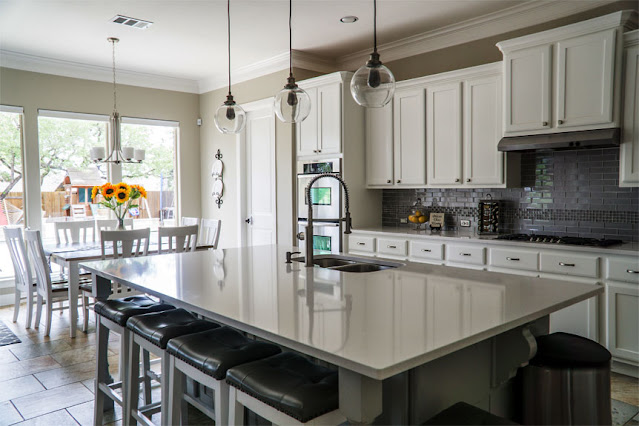New Home Inspections: 10 Checks For A Safe And Healthy Home
Inspections before the start of the new building
1. Preliminary electricity connection
Even before the first major works on the site take place, you need a temporary electricity connection. Without power, the structural contractor cannot operate his construction crane, and he and his colleagues are sitting in a dark and cold site shack.
The contractor usually provides a construction site box with a temporary connection. But it may be your turn to get everything right in time. Make the necessary arrangements with the electricity supplier at your future address in good time. Whoever installs the site cabinet, this connection must be officially inspected by a recognized inspector.
During the work on site
2. The safety coordinator
Unless you build your home with a turnkey company, you work with different contractors during a new construction project. Think of a structural contractor, a roofing contractor, a specialist in renewable techniques, or a plasterer.
If you work with at least two contractors, then as a client, you are obliged to appoint a safety coordinator. Often the architect will designate an instance. The safety coordinator regularly monitors the work and documents whether everything is going according to the applicable safety regulations.
3. Sewage
Are your wastewater and rainwater discharged separately? And is your wastewater correctly connected to the sewerage network? Another mandatory inspection for new construction. This inspection must be done before your kitchen, toilets, and bathroom use. But playing a little shorter on the ball is okay. If a mistake does happen, you'll be glad your sewage pipes aren't covered with a thick layer of soil.
4. Final electrical installation
As soon as the delivery of your home gets closer, it's time to have your electrical installation inspected. Once approved, your final digital meter will start running.
5. Gas or fuel oil heating?
More and more new homes are disconnected from the gas network, whether or not they are required to do so. You must have your gas connection inspected if you still opt for gas. Before starting your new central heating system, a recognized installer must check and approve it down to the last detail. This is because poor combustion means the risk of CO 2 poisoning. After this, you should have maintenance carried out on your installation regularly.
Do you heat on fuel oil? Even then, a regular check may be necessary, depending on the tank's size and location (above or below ground).
New Construction Inspection After Final Delivery
6. Drinking water supply
The inspector will come after the end of the work and before the first commissioning to check whether your drinking water connection has been installed according to the rules. For example, is your drinking water completely separated from your rainwater circuit and, therefore, completely pure? And is your indoor installation completely ready? Only then will your official counter start running. Before the inspection, you must have a clear overview of where your pipes run and which appliances are connected to the water network.
Optionally provide a water connection during the works so that your contractors - such as the plasterer - can use it.
7. The EPB Reporter
Before and during your construction process, the EPB reporter makes concrete recommendations so that your future home meets the minimum energy standards. After completion, the reporter draws up a final state of affairs. What E-level do you land on? What is your final EPC score? Does your home effectively meet all energy standards? Fines may follow in the event of irregularities, so do not ignore their advice.
8. The ventilation reporter
In Austin, appointing a ventilation reporter has been mandatory since 2012. However, this is yet to be the case for Zbranek and Holt. This reporter checks whether all the proposed ventilation flows on the plan are correct in practice and whether there is sufficient air circulation in the house to guarantee a healthy indoor climate.
9. Solar panels
Do your solar panels meet the current standards for electrical installations? And is your inverter connected correctly? An official inspection after your new build is a must before enjoying free solar energy every day.
10. Smoke detectors
In principle, it is optional to have smoke detectors officially inspected, but your insurance office can still impose it on you before a final contract. In Austin and Zbranek, it is mandatory to equip new homes with smoke detectors. In Holt, for the time being, only in rental properties. Nevertheless, it is better to provide enough smoke detectors in your home: a small cost, but it gives you enormous peace of mind.
Everything is collected in your post-intervention file
In summary: there are many checks and inspections within new construction projects. But it doesn't stop there. Apart from the above official inspections and checks, many other construction professionals ensure that your home will remain your haven. For example, think of the soil probing companies that check whether your building land has sufficient load-bearing capacity or the stability engineers that check and double-check the strength of your foundations.
At the end of your construction adventure, all important inspection documents are collected by your safety coordinator in your post-intervention file. Also present in this file are your home's plans, all materials and technical installations used, and the locations of all utility lines. In short: a complete and detailed overview of your home, which any future buyers will also get their hands on.
Build in Austin, TX? Then you get help
Finally: are you planning to build a company with Custom Home Builder in Austin? Then they will take care of all applications and the associated follow-up of inspections. You saved another whole piece of paperwork!



Comments
Post a Comment